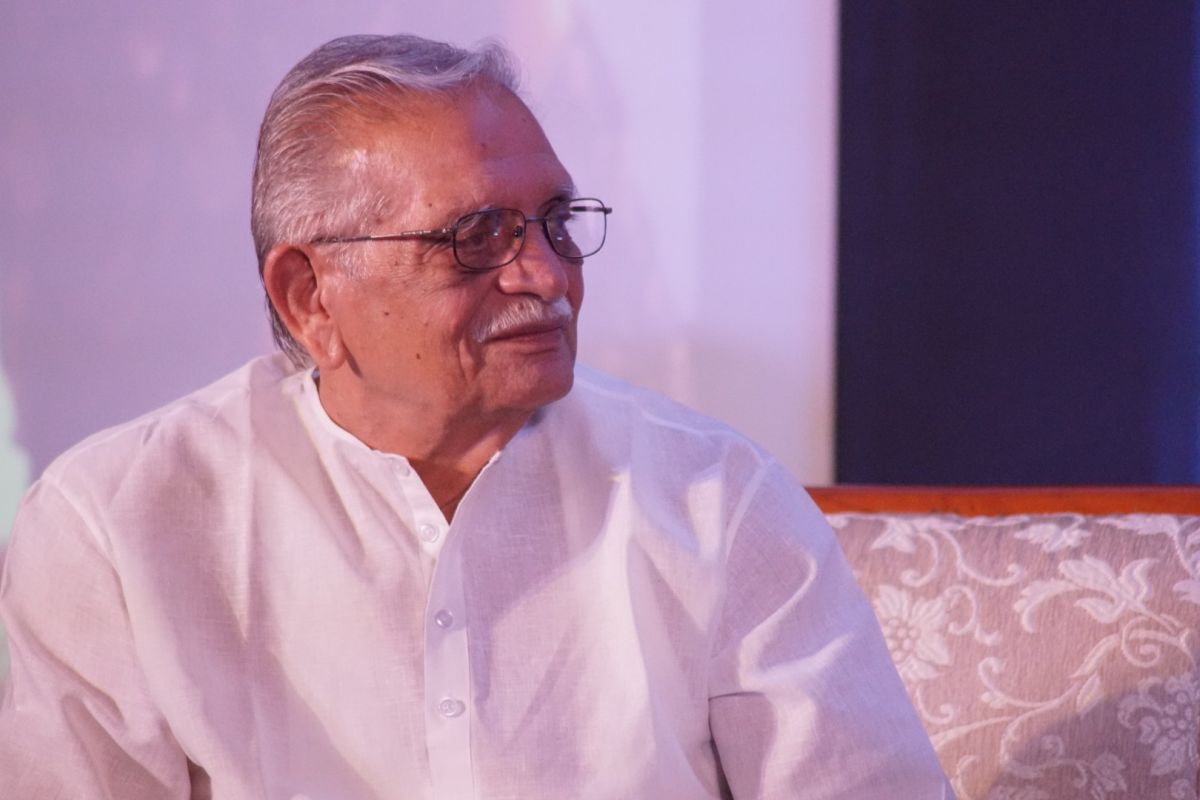Legend recognises legend: A.R. Rahman wishes Taylor Swift all the best for her new album
On Wednesday, Rahman, who recently delivered the chartbuster album for the Imtiaz Ali directorial 'Amar Singh Chamkila', took to X to wish the singer.

(File Photo: IANS)
There are a number of stories about how Gulzar, who turned 89 on Friday, became one of Hindi cinema’s most celebrated lyricists after being better known in his years as a struggler after Partition in Mumbai for his expertise in re-painting cars mauled in crashes.
The one that seems most credible, however, has come from him. Despite his skill with car colours, Gulzar’s first love was the written word and he was a regular at the Progressive Writers Association (PWA), which was then a creative hub of just about every Titan in Hindi and Urdu literature.
It was at PWA meetings that the undiscovered poet struck up a friendship with lyricist Shailendra, who introduced him to Bimal Roy, who, in turn, told him that he was wasting his time and talent at a car workshop.
Advertisement
Roy drafted Gulzar, till then known as Sampooran Singh Kalra, for his last film, ‘Bandini’ (1963). It was for ‘Bandini’ that he wrote the lyrics for his first song in Hindi cinema — ‘Mora Gora Rang Le Le’ — picturised on Nutan and memorably sung by Lata Mangeshkar to the music of Sachin Dev Burman.
The film’s star cast also included Ashok Kumar and another rookie, Dharmendra. The song was a hit and Gulzar was not even 30.
This is of course how Gulzar would like to remember his entry into Hindi cinema. Apparently, it was not so straightforward. Shailendra, the film’s official lyricist, had a tiff with Burman, and he refused to write more songs, leaving Roy in the lurch. A desperate Roy requested Shailendra to complete the assignment. Shailendra, instead, recommended Gulzar.
It is a recommendation that generation of cinema goers and top music directors, from Salil Chowdhury to Rahul Dev Burman to A.R. Rahman and Vishal Bharadwaj, would thank Shailendra for.
Born in a Sikh family on August 18, 1934 to Makhan Singh Kalra and Sujan Kaur, at Dina in Jhelum District (now in Pakistan), Gulzar got addicted to writing when he read the translations of the works of Rabindranath Tagore in school.
Following Partition, he had to stop his studies and come to Mumbai to join his elder brother. The two did not quite get along and Sampooran started painting cars to support himself in the big city.
After ‘Bandini’, Gulzar’s path wasn’t one of tinsel glory, although he was establishing his reputation for his “daringly defiant” Urdu poetry, but over the years, his oeuvre has ranged from the prayer song of Hrishikesh Mukherjee’s ‘Guddi’ (‘Humko man ki shakti dena’) to the anthemic ‘Jai Ho’ from ‘Slumdog Millionaire’ and the lyrical ‘Kajra re’ from ‘Bunty Aur Babli’.
In between, his words have provided the soul to songs as different as the Amir Khusraw-inspired ‘Ay hairathe aashiqui’ for Mani Ratnam’s 2007 Hindi film ‘Guru’ (music: A. R. Rahman) to the all-time hit song, ‘Chaiyya Chaiyya’, from ‘Dil Se…’ (another Ratnam-Rahman joint venture), based on the Sufi folk song ‘Thaiyya Thaiyya’, with lyrics by Bulleh Shah.
And imagine Vishal Bhardwaj’s three iconic films — ‘Omkara’ (2006), ‘Kaminey’ (2009) and ‘Ishqiya’ (2010) — without Gulzar’s lyrics, from ‘Beedi, to ‘Dhan Te Nan’ and ‘Dil To Bachcha Hai Ji’.
Gulzar may have got his break in Hindi cinema because of his way with the Urdu language, but his films as director have left behind an equally big mark.
They range from the Khwaja Ahmad Abbas-scripted ‘Achanak’, based on the Nanavati case that shook Mumbai’s moral fibre in 1958, to ‘Aandhi’ (Sanjeev Kumar and Suchita Sen), which was banned during the Emergency because it was too uncomfortably close to Indira Gandhi’s life, to the Shabana Azmi-Naseeruddin Shah-starrer ‘Libaas’, whose portrayal of an extra-marital relationship was considered too daring for Indian audiences — it has been screened only twice in India, both times at the International Film Festival of India (1992 and 2014).
Gulzar started with Sachin Dev Burman and it was the music legend’s son, R.D. Burman, who composed the music for almost all the movies directed by him in the 1970s and 1980s (‘Parichay’, ‘Khushboo’, ‘Aandhi’, ‘Angoor’, ‘Ijaazat’ and ‘Libaas’).
Many of the hit songs of these films were sung by Kishore Kumar, Lata Mangeshkar and Asha Bhosle. And these include ‘Musafir hoon yaron’ (‘Parichay’), ‘Tere bina zindagi se koi’ (‘Aandhi’), and ‘Mera kuchh samaan’ (‘Ijaazat’).
A multi-faceted, evergreen force in Hindi cinema, and in Urdu poetry, Gulzar can never grow out of fashion — or become irrelevant.
Advertisement